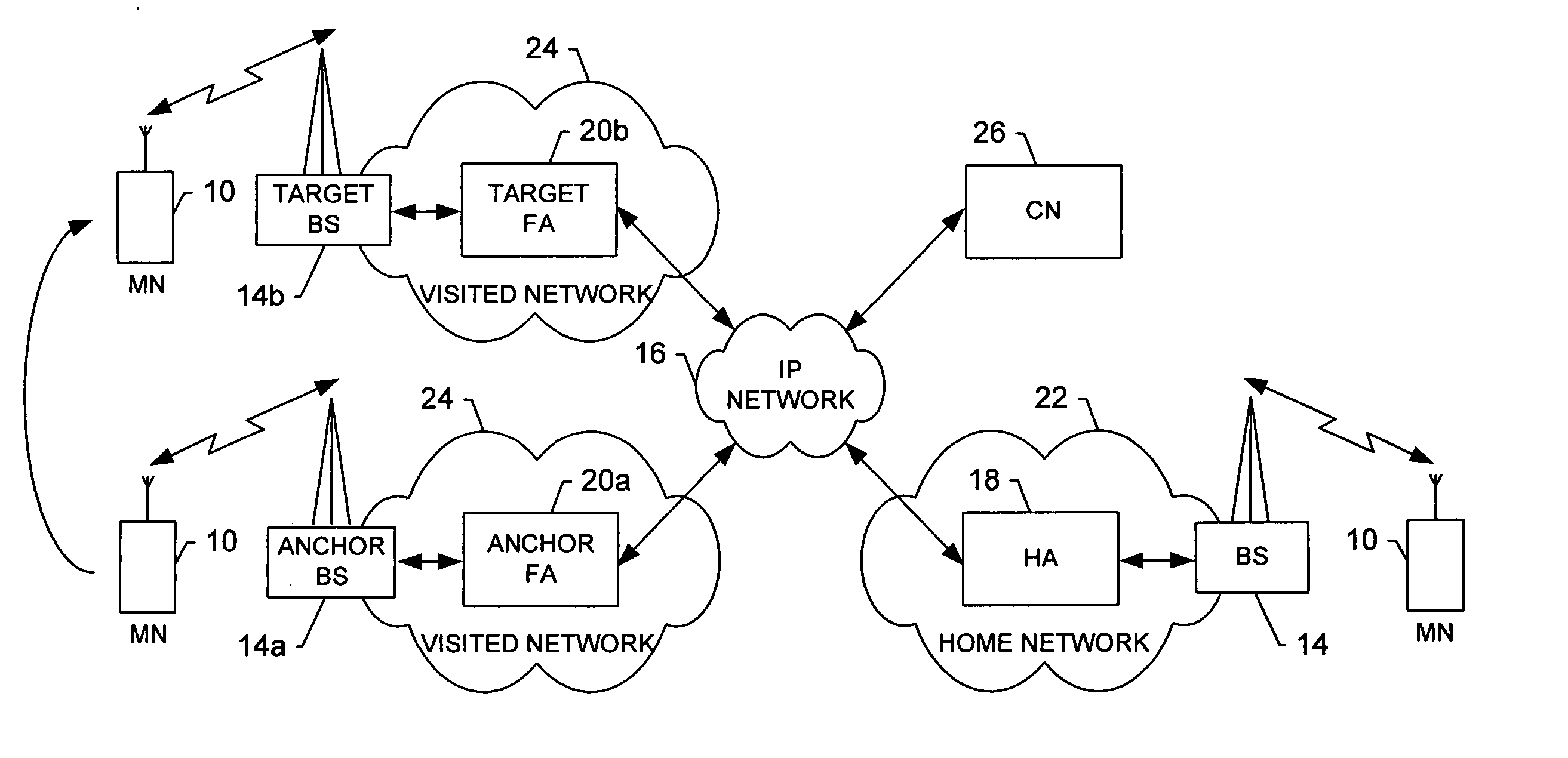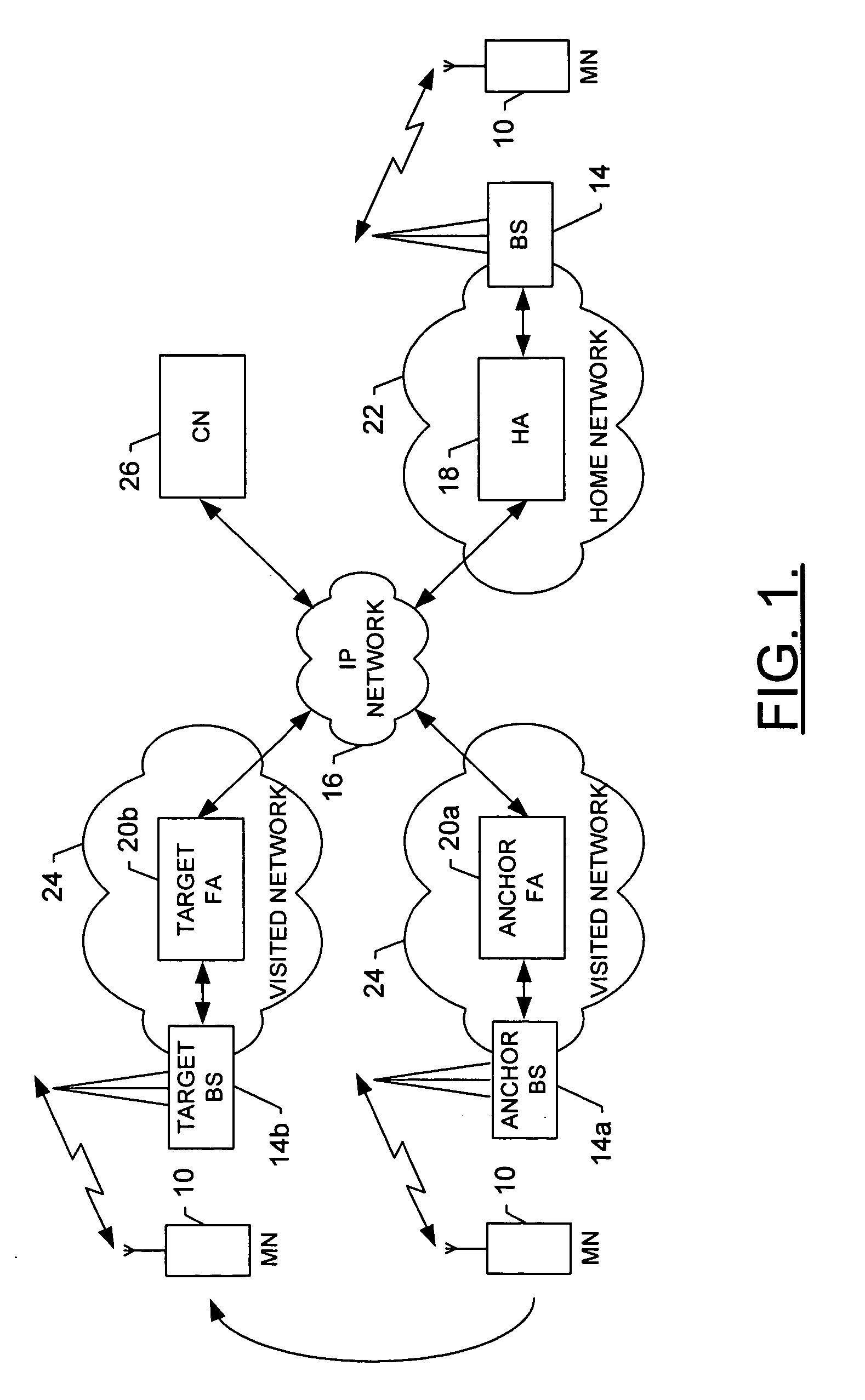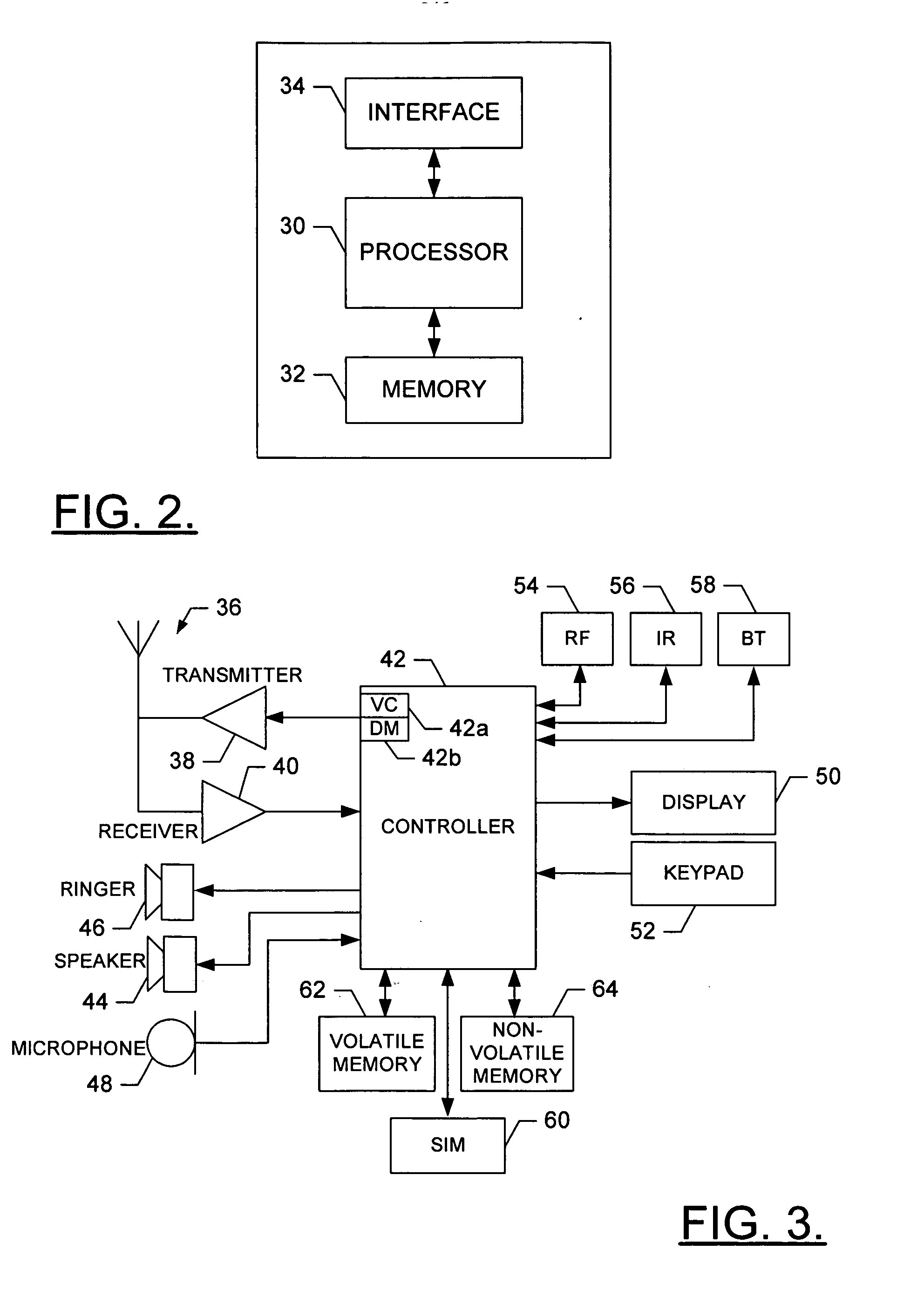System and associated mobile node, foreign agent and method for link-layer assisted mobile IP fast handoff from a fast-access network to a slow-access network
a mobile node and fast technology, applied in the field of system and method of link-layer assisted fast handoff of mobile nodes, can solve the problems of reducing the ip-layer signaling delay, reducing the delay of handoff, and unable to support real-time real-time traffic, so as to reduce the link-layer delay
- Summary
- Abstract
- Description
- Claims
- Application Information
AI Technical Summary
Benefits of technology
Problems solved by technology
Method used
Image
Examples
Embodiment Construction
[0019] The present invention now will be described more fully hereinafter with reference to the accompanying drawings, in which preferred embodiments of the invention are shown. This invention may, however, be embodied in many different forms and should not be construed as limited to the embodiments set forth herein; rather, these embodiments are provided so that this disclosure will be thorough and complete, and will fully convey the scope of the invention to those skilled in the art. Like numbers refer to like elements throughout.
[0020] Referring to FIG. 1, an illustration of one type of system that would benefit from the present invention is provided. The system, method and computer program product of embodiments of the present invention will be primarily described in conjunction with mobile communications applications. It should be understood, however, that the system, method and computer program product of embodiments of the present invention can be utilized in conjunction wit...
PUM
 Login to View More
Login to View More Abstract
Description
Claims
Application Information
 Login to View More
Login to View More - R&D
- Intellectual Property
- Life Sciences
- Materials
- Tech Scout
- Unparalleled Data Quality
- Higher Quality Content
- 60% Fewer Hallucinations
Browse by: Latest US Patents, China's latest patents, Technical Efficacy Thesaurus, Application Domain, Technology Topic, Popular Technical Reports.
© 2025 PatSnap. All rights reserved.Legal|Privacy policy|Modern Slavery Act Transparency Statement|Sitemap|About US| Contact US: help@patsnap.com



